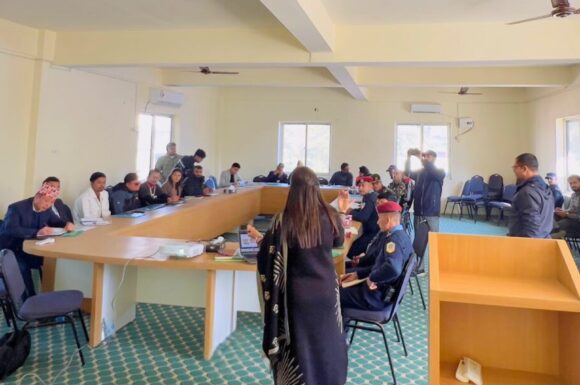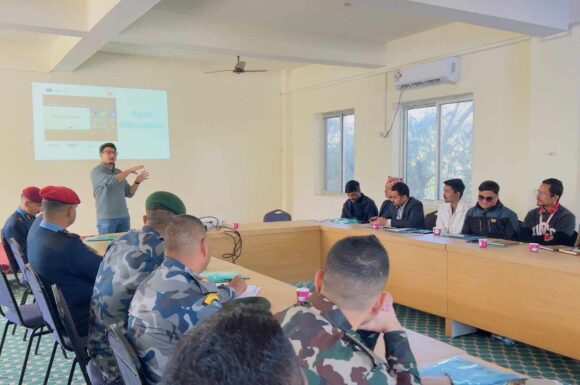Policy Dialogue on Landslide Risk Mitigation
On 17 December 2024, Restless Development Nepal, in partnership with the Ministry of Internal Affairs and Law of Sudurpashchim Province and consortium partners Youth Innovation Lab, CREASION, and the Centre for Disaster Management Studies (CDMS), hosted a pivotal policy dialogue in Dhangadhi under the EU-funded YouthCan.org project. The event focused on disaster risk prevention and management, with a special emphasis on landslide mitigation. This dialogue marked a significant milestone in the YouthCan.org project’s mission to translate youth-driven data into actionable policy reforms.

The TagMe Revolution
Central to the initiative is the innovative TagMe app, a tool empowering young digital volunteers from Nepal’s remote regions to map landslides and identify at-risk zones. These volunteers, leveraging their local knowledge, have mapped 1584 landslides across Sudurpaschim Province. Their real-time data has proven to be a game-changer, providing essential insights for disaster risk reduction strategies. During the monsoon season, the app allowed for the reporting of active landslides, equipping government authorities with critical information for immediate and long-term mitigation efforts.
The policy dialogue saw participation from key stakeholders, including representatives from various provincial ministries, local government bodies, security forces, and the media. Karuna Thapa, Program Coordinator at Restless Development Nepal presented findings from the TagMe app, shedding light on the alarming prevalence of landslides in Sudurpashchim Province, particularly in Doti, Dadeldhura, Achham, and Bajhang districts. The district of Doti emerged as the most vulnerable, highlighting the urgent need for targeted interventions.

Discussions during the dialogue emphasized the accuracy and reliability of the data collected through the TagMe app. Sabin Dotel of Youth Innovation Lab addressed concerns about data validation, explaining that the app’s real-time images ensure credibility and eliminate the possibility of tampering. This reinforced confidence in the tool’s utility among attendees.
Participants at the event advocated for the integration of the app’s findings into local governance frameworks. They underscored the importance of disseminating the data at municipal and district levels to inform budget allocations and development plans. Additionally, the dialogue highlighted the need for greater community involvement in disaster management, recognizing volunteers as pivotal in raising awareness and ensuring timely interventions.

From Data to Policy
The discussion also brought to light existing gaps in disaster management policies, calling for comprehensive strategies that address environmental vulnerabilities. Suggestions included incorporating landslide-prone zones into infrastructure planning and improving disaster response mechanisms. The event concluded with a commitment to leverage TagMe’s data for provincial disaster management strategies. Stakeholders emphasized the need for enhanced collaboration between government agencies and youth organizations, expanded training for volunteers, and increased funding to address identified vulnerabilities.
The policy dialogue showcased the transformative potential of technology and youth-driven advocacy in shaping disaster risk management. Karuna Thapa remarked, “The data collected through TagMe is not just information—it’s a tool for saving lives and building resilience.” With continued collaboration and support, initiatives like theYouthCan.Org project aim to revolutionize disaster risk management in Nepal.
